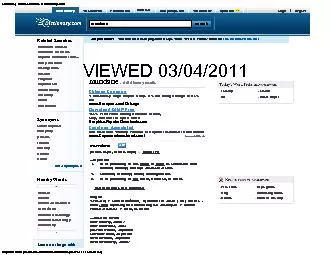PPT-Chapter 3 Flashcards
Author : pasty-toler | Published Date : 2016-05-11
Accessories Accessories individuals who contribute in some way to the crimes commission accusatorial system accusatorial system the defendant is presumed guilty
Presentation Embed Code
Download Presentation
Download Presentation The PPT/PDF document "Chapter 3 Flashcards" is the property of its rightful owner. Permission is granted to download and print the materials on this website for personal, non-commercial use only, and to display it on your personal computer provided you do not modify the materials and that you retain all copyright notices contained in the materials. By downloading content from our website, you accept the terms of this agreement.
Chapter 3 Flashcards: Transcript
Download Rules Of Document
"Chapter 3 Flashcards"The content belongs to its owner. You may download and print it for personal use, without modification, and keep all copyright notices. By downloading, you agree to these terms.
Related Documents













![[EPUB] - Essential GRE Vocabulary (flashcards): 500 Flashcards with Need-to-Know GRE](https://thumbs.docslides.com/903450/epub-essential-gre-vocabulary-flashcards-500-flashcards-with-need-to-know-gre-words-definitions-and-terms-in-context-grad.jpg)
![[DOWNLOAD] - Essential GRE Vocabulary (flashcards): 500 Flashcards with Need-to-Know](https://thumbs.docslides.com/905104/download-essential-gre-vocabulary-flashcards-500-flashcards-with-need-to-know-gre-words-definitions-and-terms-in-context-grad.jpg)